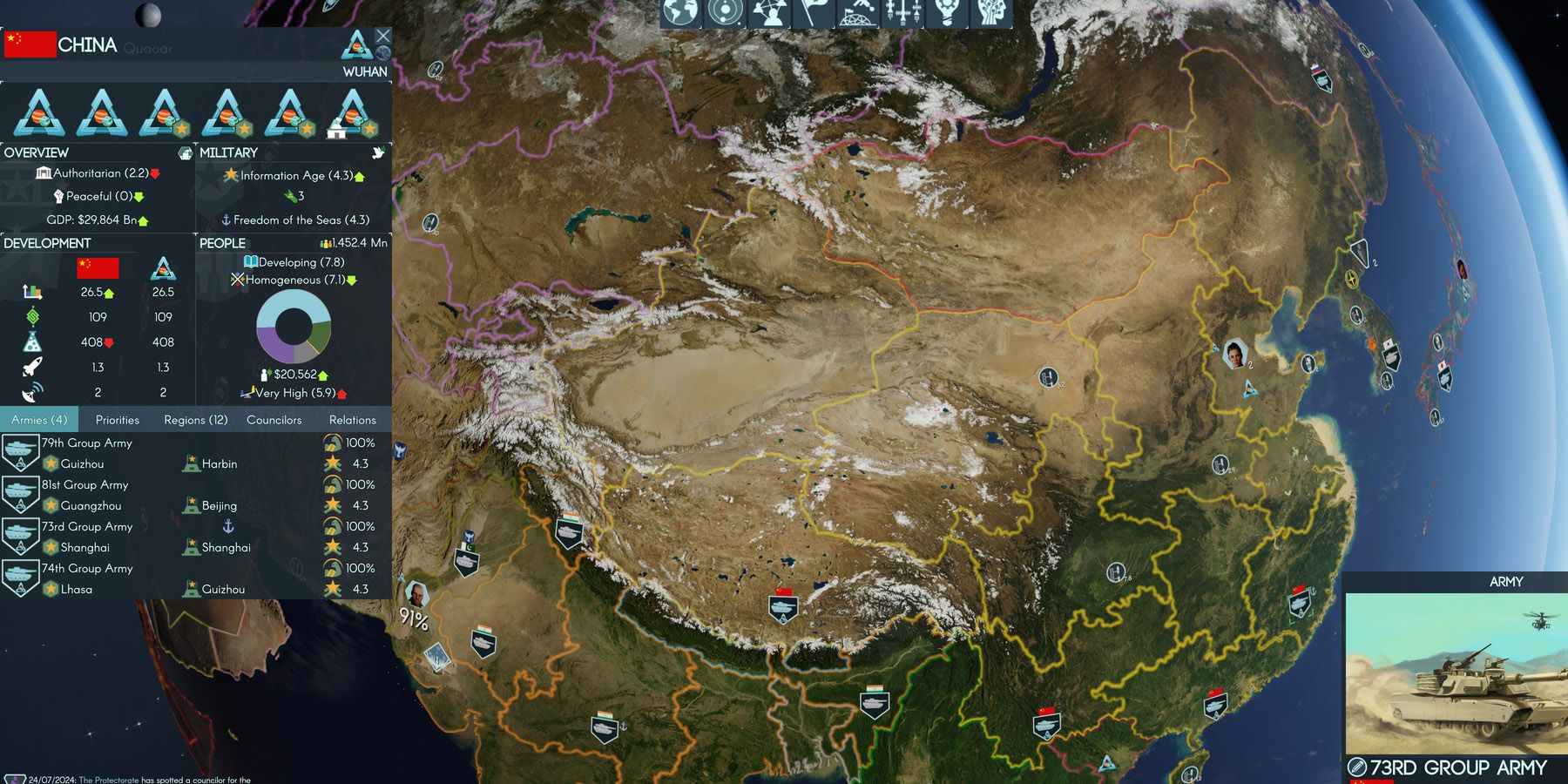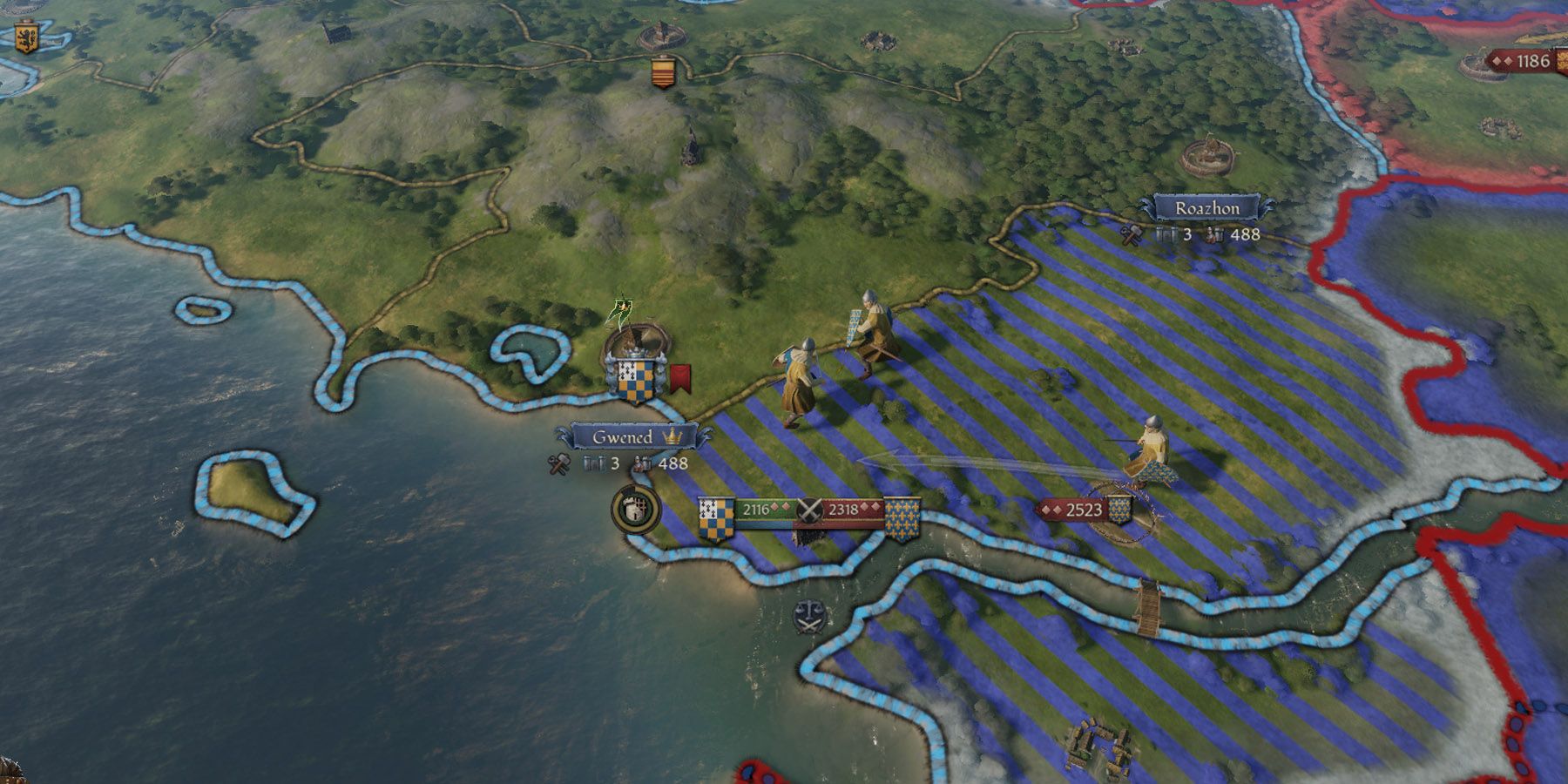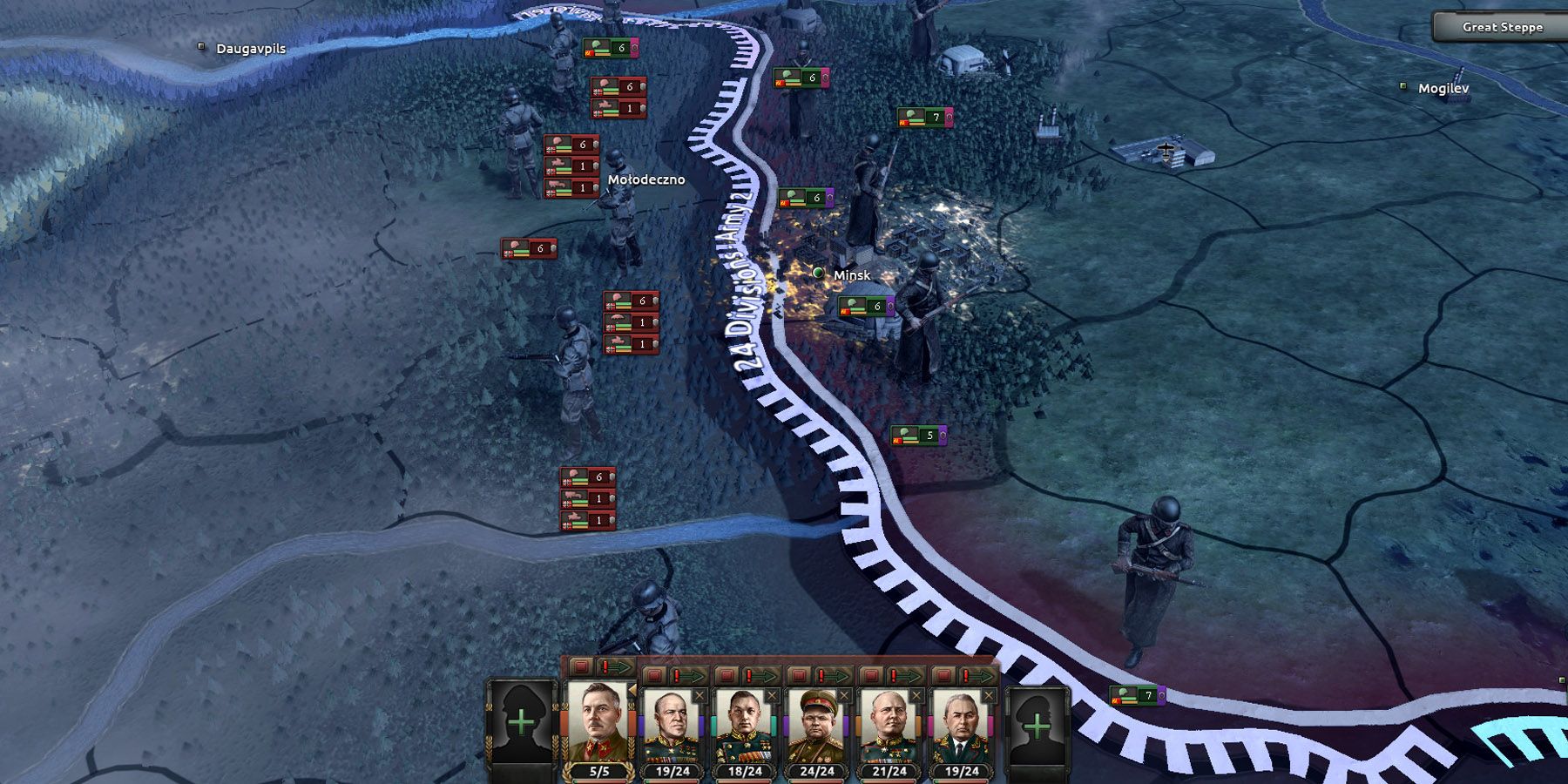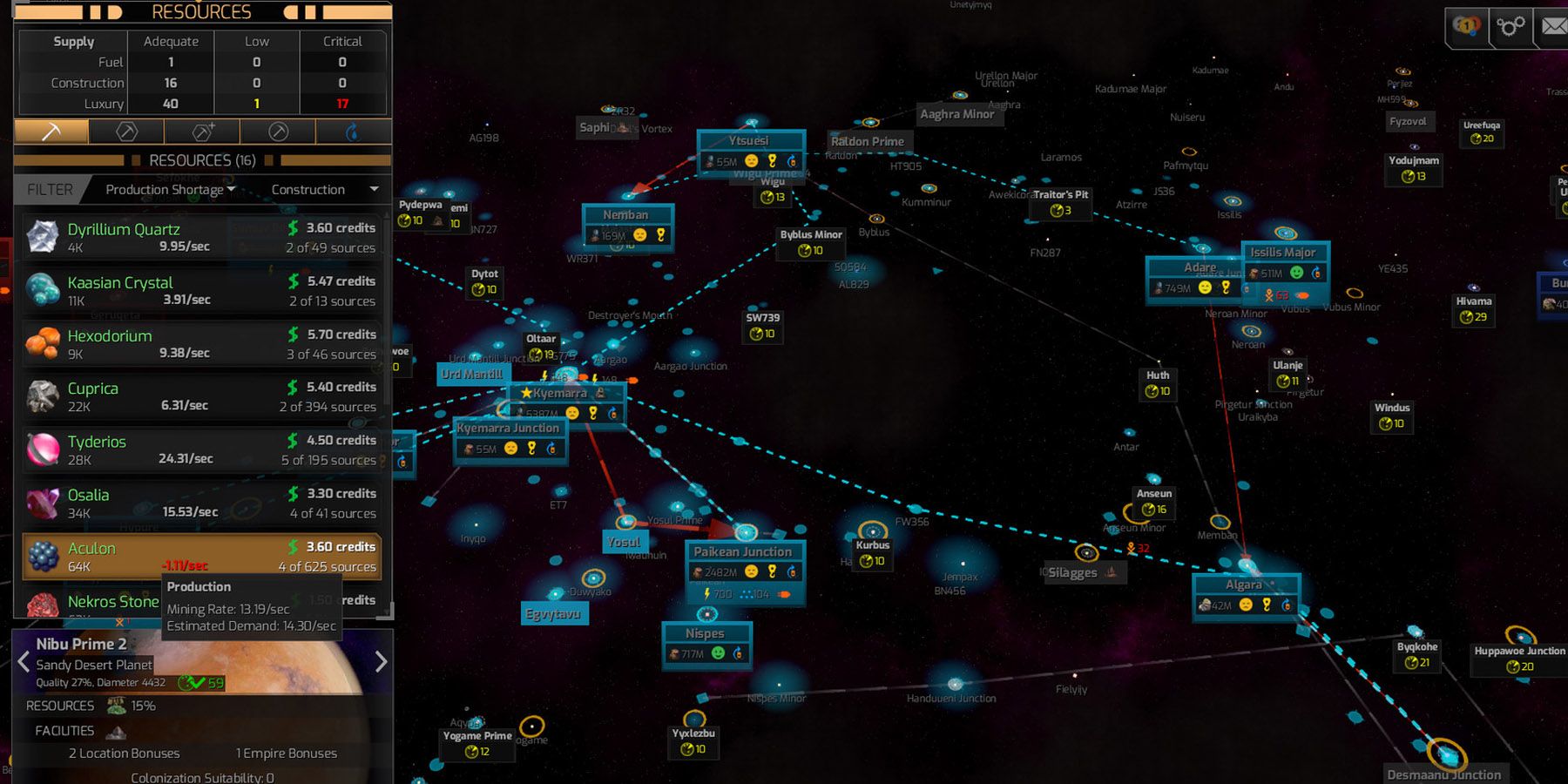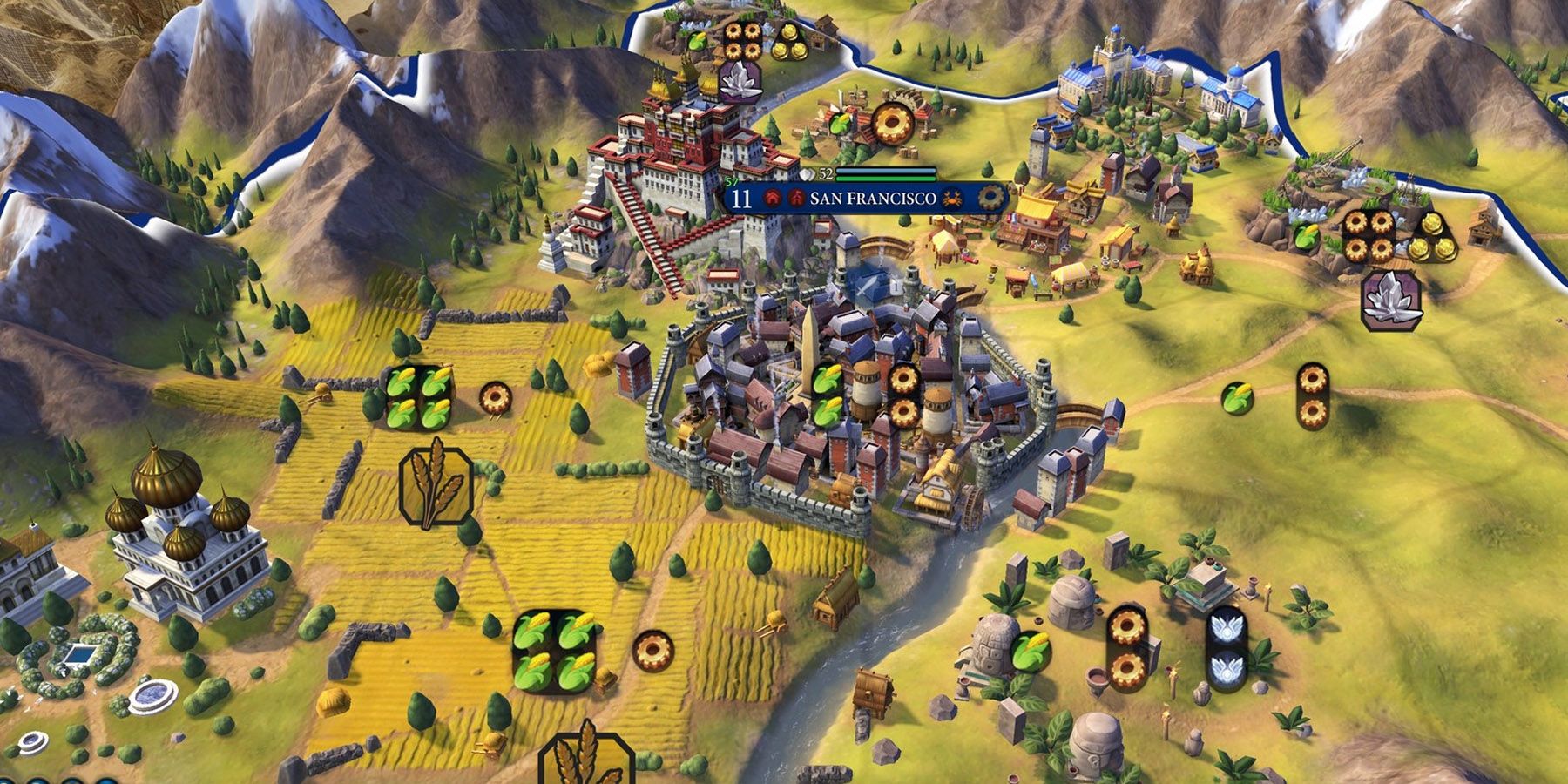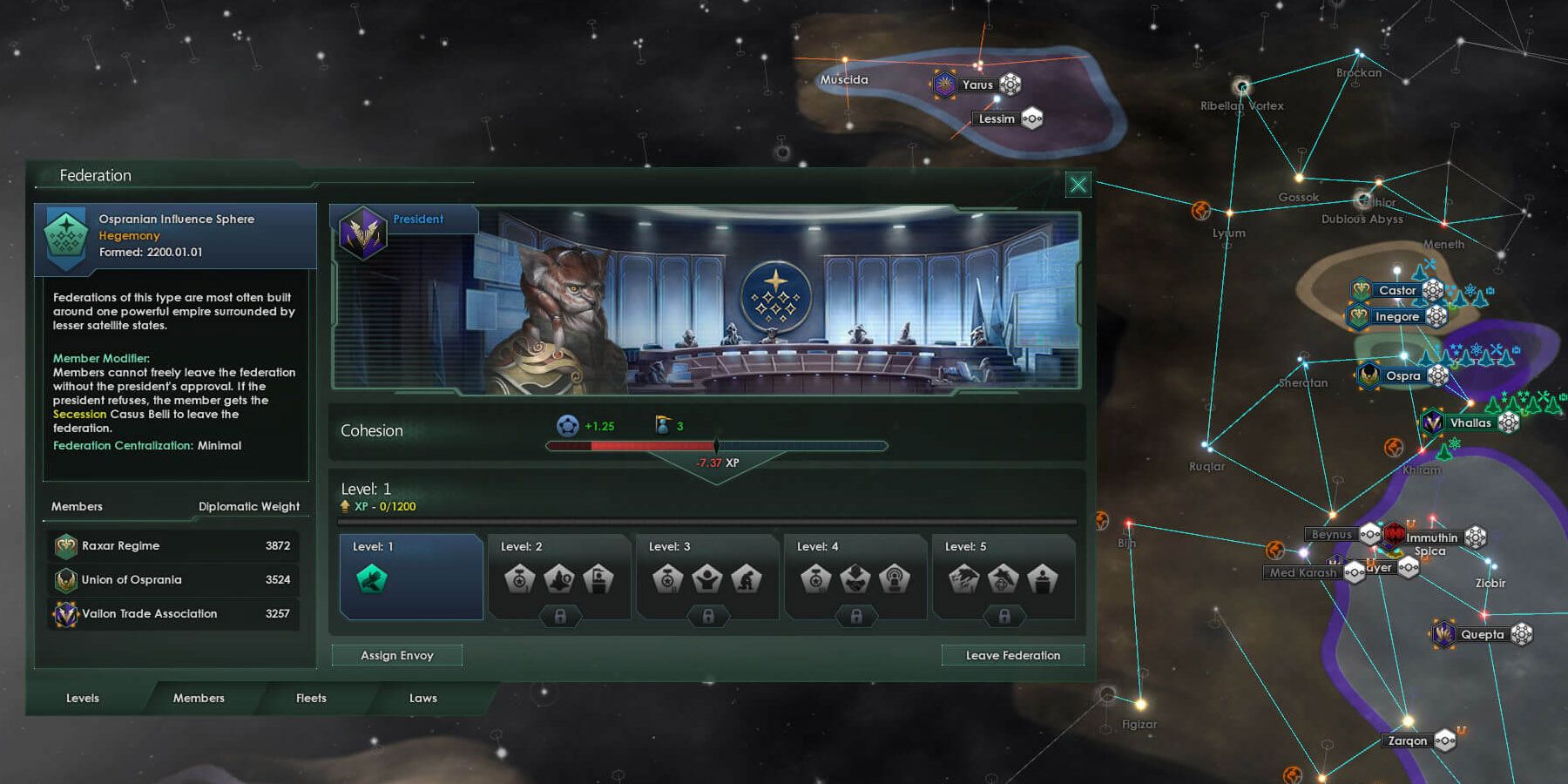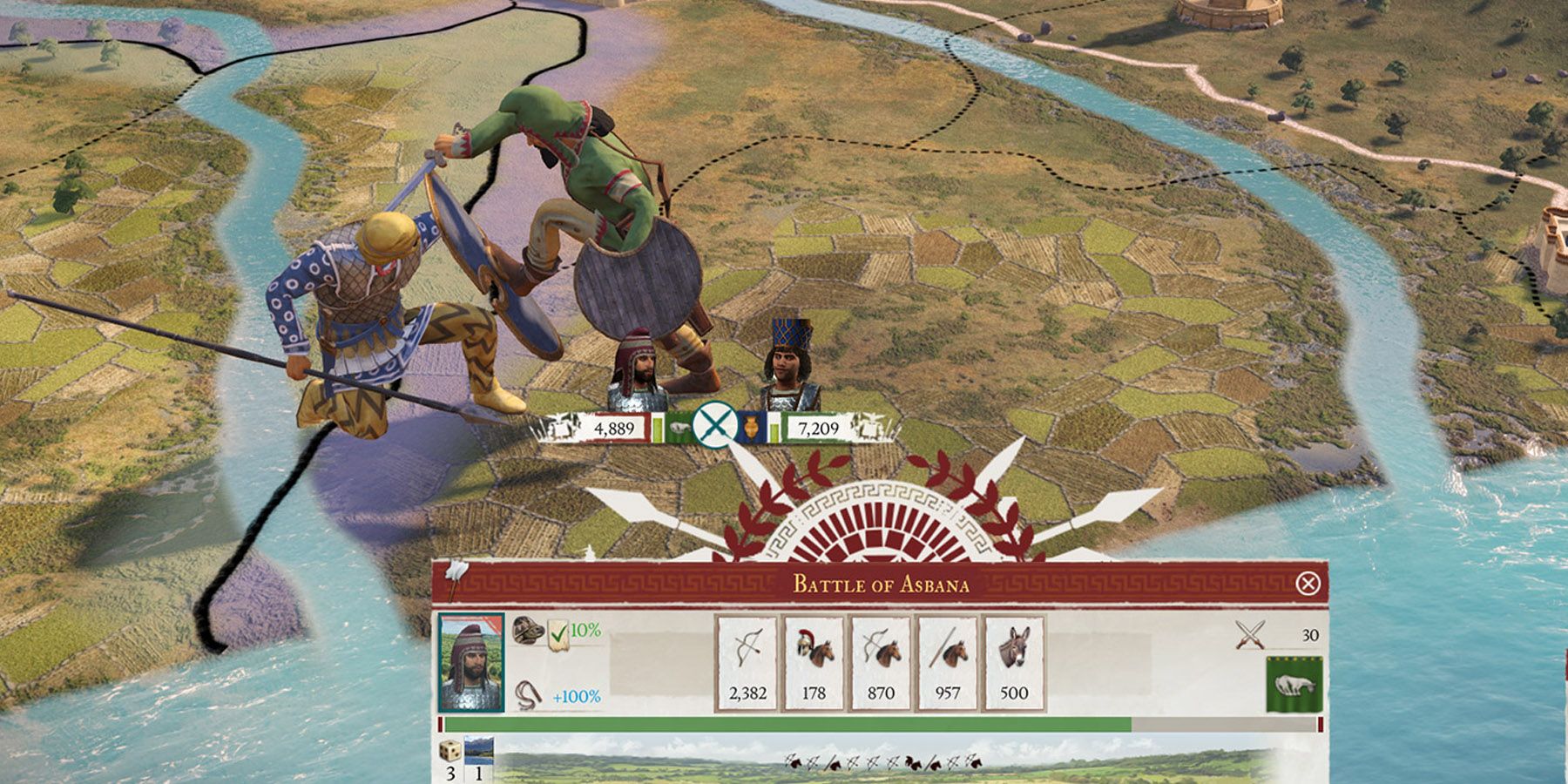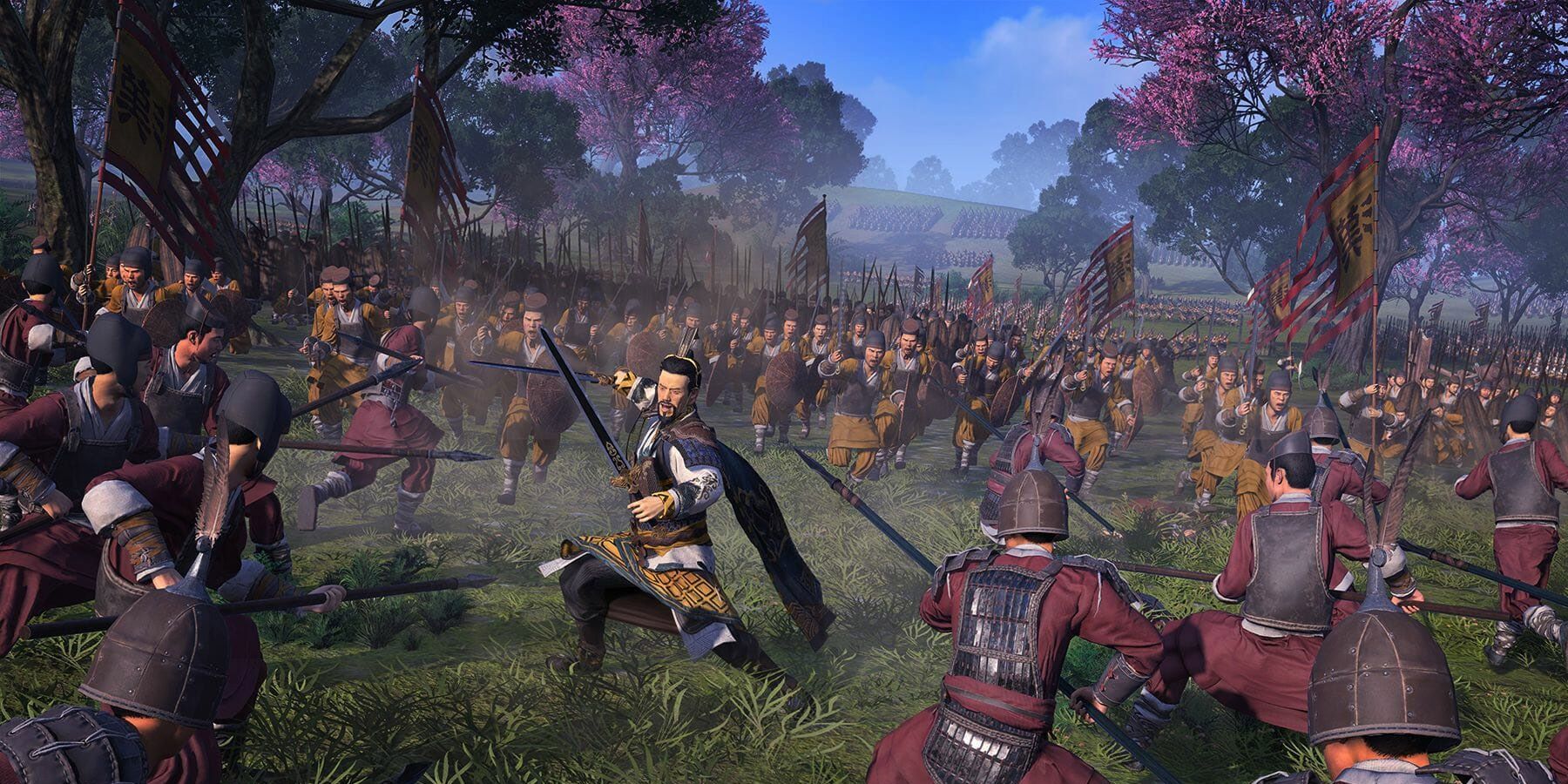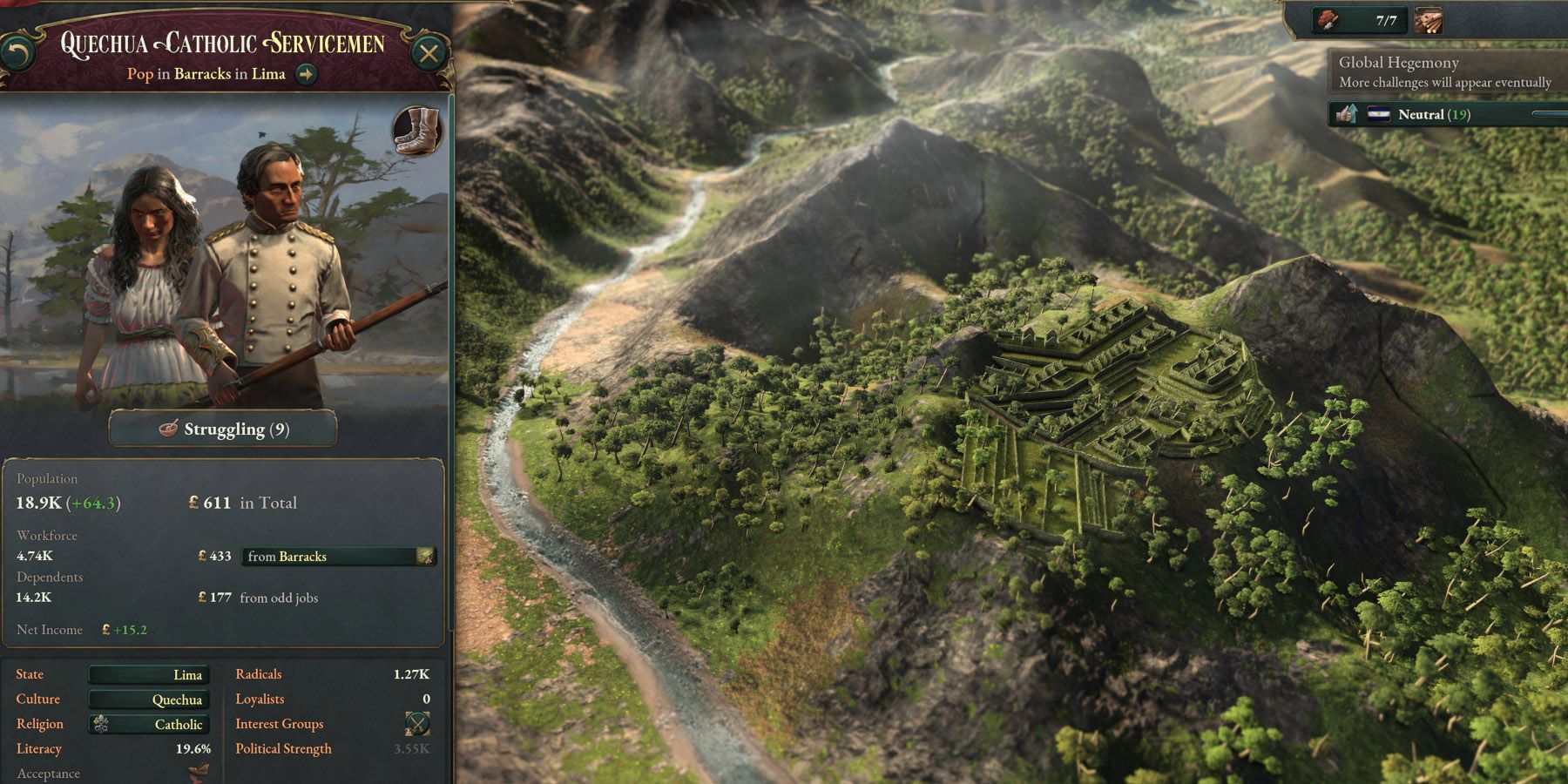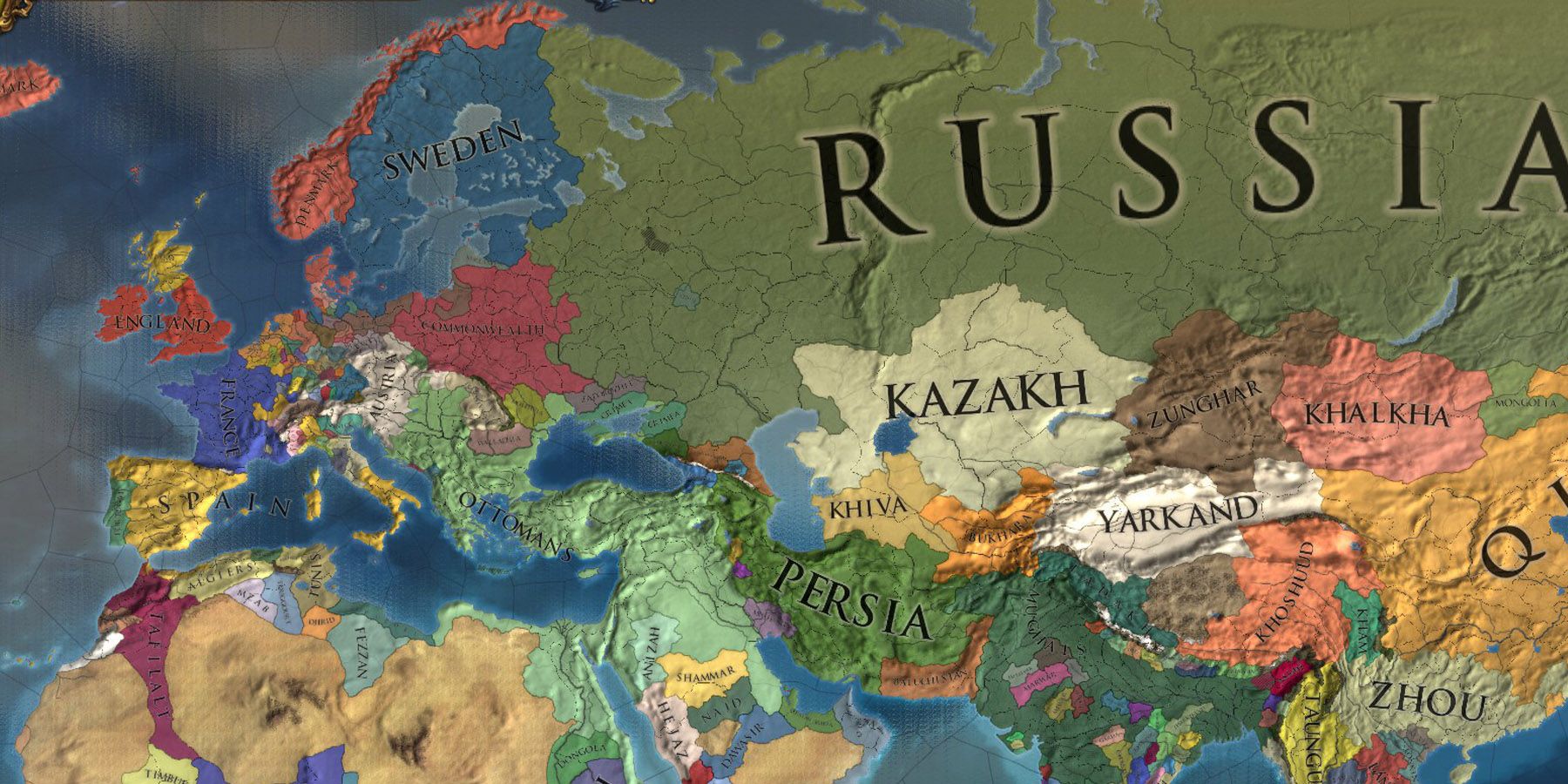Grand Strategy Games With The Best Economy Systems

[ad_1]
Highlights
- Not all grand strategy games have dynamic economic systems, but specific titles like Terra Invicta offer exciting approaches to resource management.
- Balancing taxes and expenses in games like Crusader Kings 3 can have significant consequences, affecting a ruler’s reputation and the stability of their territories.
- Games like Stellaris and Victoria 3 feature impactful economies, where resources are divided into tangible and abstract categories, and economic decisions can shape the course of a civilization.
While grand strategy titles such as Civilization and Europa Universalis can help gamers create their ideal territory, enthusiasts may look for games with the best number-crunching options. After all, strategy games become more interesting when players pursue victory conditions other than waging war against opponents, and it’s significantly more satisfying to outwit enemies on the financial front.
However, not all grand strategy games offer a dynamic way of engaging opponents in an economic war. Thankfully, specific titles in the genre have an exciting way of approaching economic systems that encourage players to focus more on being strategic in resource management.
10 Terra Invicta
When an alien invasion threatens life on Earth, players of Terra Invicta control secret factions that influence humanity’s response. Despite Terra Invicta being in early access, its take on macro-level planning provides a straightforward approach to grand strategy economics. Thematically speaking, Terra Invicta “economics” revolves around factions using their “influence” over nations to work towards the three-pronged goal of Earth’s defense, interstellar domination, and their secret objectives.
Factions achieve these goals by exerting Control Points over nations, which they grow by adding Investment Points into Priorities (e.g. Economy, Knowledge, Nuclear Weapons) or concepts that define their capabilities across multiple fronts. However, players eventually need to manage their areas carefully, as more productive nations carry larger risks of unrest whereas flexible smaller nations have fewer capabilities.
9 Crusader Kings 3
Crusader Kings 3
- Platform(s)
- PS5, Xbox Series X, Xbox Series S, PC
- Released
- September 1, 2020
- Developer(s)
- Paradox Interactive
- Genre(s)
- RPG, Grand Strategy
As Crusader Kings 3 follows the formula of a Middle Ages simulator, its nation-building components go beyond mere economies. Whereas a region’s expenditures revolve around simple Domain and Vassal Taxes, they still form part of the bedrock of a player’s survival across generations. Players need to manage using tax-based income to facilitate functions of policies and gameplay approaches (diplomacy, warfare, subterfuge) without these features being used against them.
It’s this balancing act that makes an otherwise simple economy challenging to manage in Crusader Kings 3. A slight increase in taxes to maintain a nation can transform a ruler into a tyrant, pushing territories closer to rebellion and encouraging Vassals to plot against them. And with both positive and negative sentiments extending to a player’s heirs, even a slight economic shift can affect long-term play.
8 Hearts Of Iron 4
Hearts of Iron 4
- Platform(s)
- PC
- Released
- June 6, 2016
- Developer(s)
- Paradox Development Studio
- Genre(s)
- Grand Strategy
Unlike other grand strategy titles, Hearts of Iron 4 places a greater emphasis on the wargame aspect of the simulation genre due to its World War 2 setting. At its core, Hearts of Iron 4 gameplay simulates not just strategic combat, but also behind-the-scenes elements such as production, political interests, diplomacy, and even espionage that affected the war effort. While flawed from a theoretical standpoint, Hearts of Iron 4 provides perhaps the closest a war game could offer to a historically accurate wartime economy.
On top of factories determining how well nations are supplied to accommodate military tactics, they have to be protected and maintained. Tech research, laws established, and even diplomatic endeavors affect a nation’s productive capabilities. Improper production management could result in a nation falling in Hearts of Iron 4, making them one of the unexpected backbones of military success.
7 Distant Worlds 2
Released as the much-awaited sequel of 2010’s Distant Worlds, Distant Worlds 2 boasts familiar space 4X mechanics while improving upon its acclaimed automation system. In turn, Distant Worlds 2 lets players delegate entire aspects of their galactic empire to AI, such as planetary management, tech trees, as well as space warfare.
While players can fully control (or automate) their civ’s economic status, actions taken here can only influence the game’s Private Economy or civilian finances. In turn, players have to go beyond mere space trading, as they also have to balance providing resources for civilians to spend on with the potential corruption within heavily populated planets. Moreover, automation also helps Distant Worlds 2 become a friendlier game to newcomer grand strategy economists, as being able to handpick specific economic aspects to automate can help them learn systems at their own pace.
6 Civilization 6
Civilization 6
- Platform(s)
- PS4, Xbox One, Switch, PC, Android, iOS
- Released
- October 21, 2016
- Developer(s)
- Firaxis Games
- Genre(s)
- Strategy
The most recent entry in the Civilization series may be more economically intensive, with Civilization 6 having a streamlined yet flexible ruleset that makes it more of an upgrade to Civ 4 compared to Civ 5. Managing Gold, Food, and even Production became more fulfilling courtesy of micro-to-macro effects caused by Trade Routes, specialized city Districts, and nation modifications through Civics, Diplomacy, Espionage, and Governments.
Granted, the “economy” in Civilization 6 has less to do with a real market and instead focuses on resource management that extends to civ interactions. However, this rudimentary approach to simplified resources can prepare gamers for larger-than-life economics in other grand strategy titles, making Civilization 6 a recommended title in this regard.
5 Stellaris
Stellaris
- Platform(s)
- PC, PS4, Xbox One
- Released
- May 9, 2016
- Developer(s)
- Paradox Development Studio
- Genre(s)
- 4X, Grand Strategy
Being in charge of a burgeoning species means Stellaris gameplay first revolves around controlling a single planet and basic surrounding resource centers until players explore the known galaxy and establish colonies. To avoid overwhelming players, Stellaris opts for a straightforward economy system: Pops (population) do specific Jobs to produce Resources, which are then used to achieve most of the game’s needs.
However, where the game’s economy shines is how Resources are divided into Material and Abstract variants. In turn, a planet can focus on providing Resources that could be consumed towards tangible production efforts. Standardizing a planet’s offerings with a straightforward list of consumables can help players look into producing tangible materials such as structures and ships, or more conceptual benefits such as political Influence or even speeding up Research.
4 Imperator: Rome
Similar to the glorious short stay of the Roman Empire, so too did Imperator: Rome with its timespan of 304 BCE to 27 BCE. Payers can choose to develop any nation from the Iberian Peninsula to India, with Imperator Rome emphasizing the interplay between colony annexation, diplomacy, and trade routes. While the game’s economy feels like a mere balancing act between Income and Expenses, each action here can drastically affect the empire’s functionalities.
For instance, mere deficits affecting Wages to mercenaries can make them disloyal. Likewise, passed laws could impact the amount of Taxes cities could provide players. Limitations in diplomatic reach could also hinder the creation of trade routes. This micro-to-macro approach of Imperator: Rome economics can make it a strong entry point for newcomers.
3 Total War: Three Kingdoms
Taking in the chaotic Three Kingdoms era, Total War: Three Kingdoms tasks players to unify China as one of its twelve major factions. On top of traditional resource juggling and the occasional warfare, gameplay in Total War: Three Kingdoms focuses on siege battles, and duels between generals, as well as building and maintaining social connections. This focus Total War: Three Kingdoms has on social relations extends to its economy.
Aside from a traditional interplay between Income and Expenses, a faction’s economy is affected by a province’s relationship with nearby areas, represented by trade influence, marketplaces, and trade shares. Likewise, players need to quell internal unrest by managing the political progress of their retainers, and even the wealth possessed by family estates.
2 Victoria 3
Victoria 3
- Platform(s)
- PC
- Released
- October 25, 2022
- Developer(s)
- Paradox Development Studio
- Genre(s)
- Strategy
Set in the titular Victorian Era, Victoria 3 puts gamers in charge of a country on their journey from 1836 to 1936, alongside its many developments. Instead of eyeing simple world domination, Victoria 3 appreciates meticulous planning, with the emergence of factions such as the Communist Party or the Free Trade Party potentially destabilizing even the most tightly-knit nations.
This political focus ties heavily into the game’s economic system, taking the form of a simulated market with buy/sell orders and a constantly changing market price. On top of nation-only markets, Victoria 3 lets players trade via trade routes, multinational markets, or their own customs unions. Surviving throughout the century in Victoria 3 relies on how well players manage their economies, be it relying on specific exports, capitalizing on subject nations, or getting the jump on technological developments.
1 Europa Universalis 4
Europa Universalis 4
- Platform(s)
- PC
- Released
- August 13, 2013
- Developer(s)
- Paradox Development Studio
- Genre(s)
- Strategy
Among Paradox Interactive’s slate of games, Europa Universalis 4 gives a player total control over the fate of one of the world’s nations throughout the Late Middle Ages up to the Early Modern Era. Matches in Europa Universalis 4 happen within a timeline of 1444 to 1821, a period where a player’s decisions can transform a nation into their real-life counterparts or pursue radically different histories.
As Europa Universalis 4 boasts a more accessible interface, a nation’s economy is condensed into a single tab that highlights Income and Expenses. However, the economy system’s depth shows when every action impacts resources. In turn, players have to juggle predictable components such as taxes and nation maintenance while taking into account funds revolving around subsidies, colonial efforts, and missionary expenditures.
Source link
